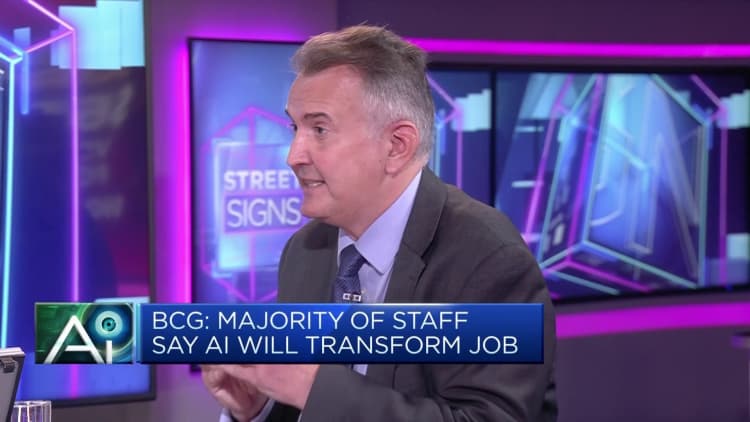There's a new entrant in the budding AI arms race.
As Microsoft-backed OpenAI and Google race to develop the most advanced chatbots, powered by generative artificial intelligence, Anthropic is investing heavily to keep up. Just a few months after raising $750 million over two financing rounds, the startup is debuting a new AI chatbot: Claude 2.
Founded in 2021 by former OpenAI research executives and funded by companies including Google, Salesforce and Zoom, Anthropic is opening up its chatbot technology to consumers for the first time with Claude 2. For the past two months, the company's AI models have been tested by businesses such as Slack, Notion and Quora, and Anthropic has accumulated a waitlist of more than 350,000 people requesting access to Claude's application programming interface and its consumer offering.
"We have been focused on businesses, on making Claude as robustly safe as possible," said Daniela Amodei, who co-founded Anthropic with her brother, Dario. "We really feel that this is the safest version of Claude that we've developed so far, and so we've been very excited to get it into the hands of a wider range of both businesses and individual consumers."
Claude 2 will initially only be available to users in the U.S. and U.K., and Anthropic plans to expand availability in the coming months.
Since OpenAI introduced ChatGPT to the public late last year, the tech world has invested heavily in the potential of generative AI chatbots, which respond to text prompts with sophisticated and conversational replies. Academics and ethicists have voiced significant concerns about the technology's tendency to propagate bias, but even so, it's quickly made its way into schools, online travel, the medical industry, online advertising and more.
In March, OpenAI released GPT-4, its biggest update to the underlying tech behind ChatGPT. Two months later, it allowed ChatGPT to start browsing the internet so responses were no longer limited by its 2021 training data cutoff date, but it then disabled the chatbot's internet browsing ability after reports of problematic uses such as bypassing paywalls.
Google announced its Bard competitor in February, and has since updated the chatbot's math and coding skills and embedded the AI service in more products.
Anthropic's ambitions are no less grand.
The company says Claude 2 has the ability to summarize up to about 75,000 words, which could be the length of a book. Users can input large data sets, and ask for summaries in the form of a memo, letter or story. ChatGPT, by contrast, can handle about 3,000 words.
Daniela Amodei said Anthropic has invested at least two months in developing Claude 2, with a team of 30 to 35 people working directly on the AI model and a total of 150 people supporting it. She said the market is growing so rapidly that there's plenty of room for multiple players to succeed.
"It's a really unusual time from a business perspective because there's just so much demand for large language models and really more demand than the industry can currently provide," Amodei said. "The landscape is just very wide, and there's really quite a lot of room for many different users and types of users to make use of these systems."
In May, Anthropic was one of four companies invited to a meeting at the White House to discuss responsible AI development with Vice President Kamala Harris. Google parent Alphabet, Microsoft and OpenAI were the others.
That same month, the company raised $450 million, following a $300 million financing round in March at a $4.1 billion valuation.
Amodei provided some tangible examples of Claude 2's improvements over the prior version of the model. The new chatbot scored 76.5% on the Bar exam's multiple choice section, up from 73%. And in a Python coding test, Claude 2 scored 71%, up from 56% in its prior iteration.
When it comes to safety, the upgraded chatbot was twice as good at giving "harmless responses," according to a blog post, though it's worth noting that the red team safety evaluation was conducted internally.
Despite Claude 2's improvements in performance, Amodei acknowledged that there are plenty of hurdles ahead for Anthropic and the entire industry. For example, the tendency for AI chatbots to make up incorrect answers, called "hallucinations" by some tech companies, is a persisting problem.
"There are just so many remaining unknown unknowns but also known challenges with all language models in the world today," Amodei said. "No language model is 100% immune from hallucinations, and Claude 2 is the same."



